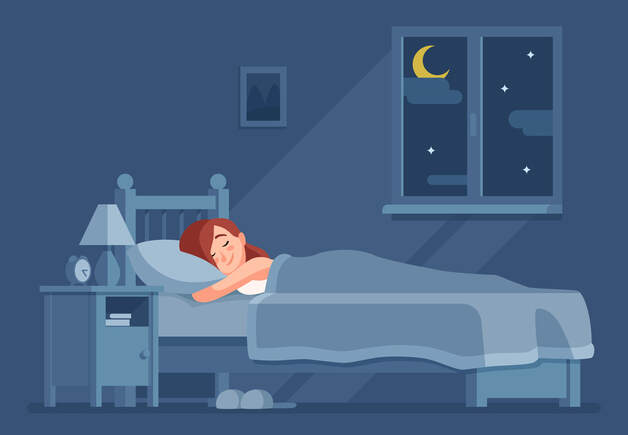With the clocks changing, now is a good time to think about your sleep. Your sleeping pattern can affect your mental health, increasing feelings of anxiety, depression and stress. If your sleep is poor and you’re struggling to get some much needed zzzzs, take a look at how to sleep better and improve your mental health.
The Facts
Did you know we spend around a third of our lives asleep? Sleep is as important to our health as eating, drinking and breathing.[i] And a lack of sleep can affect both our physical and mental health.
Medicine has identified more than 80 different sleep disorders and problems.[ii] Some can be the result of other medical conditions, but most are short-term and typically triggered by temporary events in our lives or by behavioural factors (such as drinking too much caffeine).
Just as poor sleep can impact our mental health, so can mental illness lead to a disruption in our sleeping pattern. To help break this cycle, it’s important to treat both the sleep issue and mental health problem at the same time. In some instances, this may involve a referral to a sleep clinic or the use of sleep medication.
Many sleep problems can be improved or eradicated through simple changes to our sleep hygiene. The phrase ‘sleep hygiene’ refers to the habits and practices that help us get a good night’s sleep. If you’re wondering whether or not you need to improve your sleep hygiene, ask yourself: Are you getting enough sleep? Is it good quality sleep? If the answers are no, take a look at these top tips:
Top Tips For Good Sleep Hygiene
1) Set a routine – get up and go to bed at the same time each day. And don’t sleep in by more than an hour, even on your days off
2) Avoid stimulants – caffeine, alcohol and nicotine can affect both your ability to go to sleep and the quality of sleep you get, even if they’re used hours earlier
3) Avoid napping – when you’re tired it can be tempting to take a nap. But sleeping for over an hour in the day, or napping too late in the day, can have a big effect on your sleep
4) Only use your bed for sleeping – using your bed for other activities, such as playing video games or watching TV, can lead to your brain associating your bed with these, rather than sleep
5) Exercise and eat well – exercise and healthy eating can improve sleep. Just avoid strenuous exercise or large meals in the two hours before going to bed. Equally, a light snack before bed can stop you going to bed feeling hungry
6) Have a digital detox - the activity of checking emails, updating Facebook etc. stimulates your brain instead of helping you wind down. To avoid this, switch off and put away mobile devices for 90 minutes before going to bed
7) Create a comfortable environment – the room should be quiet, dark, and not too hot or cold. Ear plugs, eye masks and fans can help with this, if needed
8) Remove distractions – electronic devices, such as laptops, phones and tablets, emit blue light that makes you feel less sleepy. Notifications also tempt you into checking your devices after going to bed. Keeping devices downstairs or switching them off will remove this distraction. To help, invest in an alarm clock rather than using your mobile phone as your alarm
9) Don’t lie in bed awake – if you haven’t fallen asleep after 20 minutes, get up and do something calming (avoiding bright lights and screens, which will activate your brain more). Lying in bed awake will stop your brain associating bed with sleep
10) Avoid checking the clock – if you’re struggling to sleep, looking at the clock can cause anxiety and increase the pressure to fall sleep, keeping you awake longer
11) Write down your thoughts – racing thoughts can make it difficult to sleep. Keep a pen and paper by the bed to write down any worries – if they’re important you can return to them in the morning. Often, your worries will seem less daunting in the daylight
12) Try mindful meditation – meditations such as a body scan or mindful breathing can help to physically relax you and interrupt anxious thoughts, calming your body and mind and helping you drift off
Getting good quality sleep can benefit your mental health. But mental illness can be the very thing that stops you sleeping well. If you need support and someone to talk to about your mental health, get in touch to make an appointment.
[i] Mental Health Foundation (2011), Sleep Matters: The Impact Of Sleep On Health And Wellbeing, Available: https://www.mentalhealth.org.uk/publications/sleep-report
[ii] Mental Health Foundation, Sleep, Available: https://www.mentalhealth.org.uk/a-to-z/s/sleep


 RSS Feed
RSS Feed